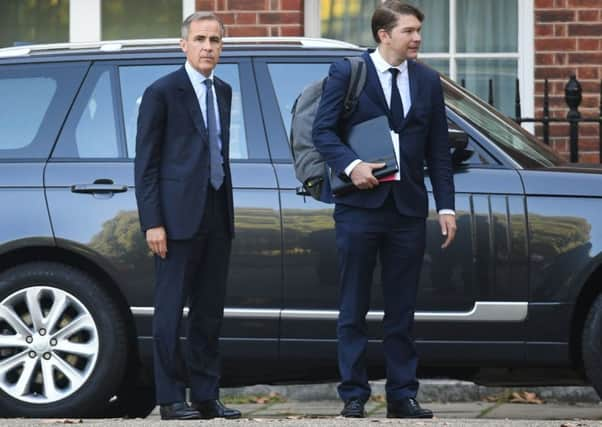Brexit: Day-to-day effects of no deal stressed in impact papers


The latest batch of papers setting out government preparations and advice in case Brexit talks fail also reveal additional red tape for businesses trading with Europe and would even remove the UK from the early warning system for space debris falling out of orbit.
Emerging from talks between the UK and devolved administrations on Brexit that also focused on no-deal preparations, the Scottish Government’s constitutional relations secretary warned of “a danger that becomes self-fulfilling”.
Advertisement
Hide AdAdvertisement
Hide Ad“What is being talked about is a completely unacceptable set of arrangements, which just seem to be becoming inevitable,” Michael Russell said.
“I’m very worried about the time and effort that is being expended on the no-deal option ... there is a real problem in the time, effort and resources this is absorbing.
“There is a danger that becomes self-fulfilling. Organisations and businesses are preparing for a no deal.
“If the momentum behind that were to continue to increase, then it might just happen. So I think it needs to be ruled out.”
Mr Russell called on the UK Government to rule out leaving the EU without a deal and commit to asking for an extension to the Article 50 exit process if agreement can’t be reached in time.
Theresa May’s Cabinet met for three-and-a-half hours to discuss preparations for a no-deal Brexit, with ministers receiving a briefing from the Governor of the Bank of England Mark Carney.
Brexit secretary Dominic Raab warned the UK would not pay its £39 billion “divorce bill” to Brussels if it is refused a Brexit deal. “There’s no deal without the whole deal,” Mr Raab wrote in an article for the Daily Telegraph.
He said the government wanted a good agreement, but added: “It will require our EU friends to match the ambition and pragmatism we have demonstrated. If that doesn’t happen, the UK will manage the challenges of no deal, so we make a success of Brexit.”
Advertisement
Hide AdAdvertisement
Hide AdScottish secretary David Mundell said it was “very important” for the UK to prepare for a no-deal scenario, even though “it’s not the outcome we want”.
“The clock is ticking, so certain measures have to be taken now, to make sure they can be put in place by March next year,” Mr Mundell said. “All of this points to how important it is to get a deal ... we want to achieve that. That’s why we’re putting so much effort into getting a deal over the next six to eight weeks.”
The pro-Europe Best for Britain campaign said the re-imposition of roaming charges could cost business people visiting the EU up to £778 a month.
The Confederation of British Industry said the notices showed the extent of disruption consumers can expect if “ideology wins over evidence”.
Director general Carolyn Fairbairn said: “Efforts on all sides should be geared towards securing the withdrawal agreement to protect the transition period.”
Dr Adam Marshall, director general of the British Chambers of Commerce, added that key questions remained unanswered.
“Firms still need greater precision from the government in order to be able to plan ahead with confidence,” he said.
“In the unwelcome event of a no deal, businesses need clear and comprehensive communication about how they will be affected and the government should be taking every possible step to minimise the disruption, bureaucracy and costs facing firms in the future.”